Belarusian State University
Belarusian State University (BSU) (Belarusian: Белару́скі дзяржа́ўны ўніверсітэ́т, Belarusian pronunciation: [bʲɛlaˈruskʲi d͡zʲarˈʒawnɨ wnʲivʲɛrsʲiˈtɛt]; Russian: Белору́сский госуда́рственный университе́т) is a university in Minsk, Belarus. It was founded on October 30, 1921.[4][5][6] In 2021 it was ranked the number 1,201 university in the world in the THE World University Rankings by Times Higher Education, number 1,606 by Nature Index - Top Academic Institutions, and number 1,784 in the URAP World Ranking - University Ranking by Academic Performance.[7]
Беларускі дзяржаўны ўніверсітэт | |
 | |
| Type | Public |
|---|---|
| Established | October 31, 1921 |
| Rector | Andrej Karol |
Administrative staff | 8032 |
| Students | 44 877 (incl. 2365 international)[1] |
| Undergraduates | 29 655 |
| Location | , |
| Nobel Laureates | 1 |
| Colours | [2] |
| Website | www |
| University rankings | |
|---|---|
| Regional – Overall | |
| QS Emerging Europe and Central Asia[3] | 22 (2022) |
History
1919-49; early years
On February 25, 1919, the Central Executive Committee of the Belorussian SSR resolved to establish the first national university in Belarus. However, the occupation of Minsk by the Polish army delayed these plans, and the university's opening was set back to October 30, 1921.[8]
Initially, the university comprised three faculties (Workers, Medicine, and Humanities) that enrolled a total of 1,390 students. The faculty included 14 professors, 49 lecturers and 10 teaching assistants, most of whom were transferred from the universities of Moscow, Kazan and Kiev. In 1922, the Pedagogical Faculty was established. The first class that counted 34 economists and 26 lawyers graduated in 1925. By 1930, the university consisted of six faculties: Workers, Medicine, Pedagogical, National Economy, Law and Soviet Development, Chemical Technology.
In 1941 the university consisted of six Faculties: Chemistry, Physics and Mathematics, Biology, History, Geography, and Languages. There was also a Workers Faculty that provided part-time education to full-time employees of factories and plants, as well as special part-time Polish- and Yiddish-language sections. After Minsk was occupied by Nazi Germany in June 1941, some students and academic staff were evacuated to the east. In May 1943, Belarusian State University was re-opened in the town of Skhodnya, 12 km northwest of Moscow. The university relocated back to Minsk in the summer of 1944 and classes resumed. In 1949, the university was named after Vladimir Lenin to commemorate the 30th anniversary of the Byelorussian SSR.
1950-2007
In 1975 the Faculty of Radiophysics and Electronics was split off from the Faculty of Physics, and in 1989 the Faculty of Philosophy and Economics was established. The research institutes for physico-chemical problems and nuclear problems were opened in 1978 and 1986, respectively.
After Belarus gained independence from the USSR in 1991, new faculties and institutes were created: the Faculty of International Relations (1995), the State Institute of Management and Social Technologies (2003), the Military Faculty (2003), the St. Methodius and Cyril Theological Institute (2004), the Humanities Faculty (2004); the Institute of Business and Technology Management (2006), the Confucius Institute for Sinology (2007).
Rector Alyaksandr Kazulin was fired in 2003 on accusations of corruption.[9][10]
2008-present; criticism and political controversies
In 2008, the activist Franak Viačorka, a member of Partyja BPF, was expelled from the Journalism Faculty of the Belarusian State University and forced into military service.[11] In the same year, Michaił Paškievič, a member of the United Civic Party and leader of the party's youth wing, was expelled from the BSU History Faculty for political activity.[12]
In 2009, the BSU Law Faculty expelled the student Tatsiana Shaputska, a member of the Malady Front, after her participation in the Civil Society Forum of the Eastern Partnership in Brussels.[13]
As part of the international sanctions against the regime in Belarus following a crackdown of the opposition following the 2010 Belarusian presidential election, Siarhiej Abłamiejka, at that time rector of the Belarusian State University, was banned from entering the European Union. In its decision, the EU Council accused him of being "responsible for the expulsion of several students from the University because they participated in the demonstrations on 19 December 2010 and in other peaceful demonstrations in 2011."[14] It was reported that students were expelled from the Belarusian State University for participating in the protests in 2010 and 2011.
According to reports by human rights organizations, politically motivated expulsions from the Belarusian State University continued also after the EU lifted most of its sanctions against Belarus in 2014.[15]
According to reports by media and human rights organizations, many students of the Belarusian State University are being forced to vote early at elections and referendums, which is considered an essential part of centralized electoral fraud in Belarus. No election or referendum in Belarus has been recognized by the United States, the European Union, or the OSCE as free and fair since the mid-1990s.[16][17][18]
In 2020–21, several university teachers were fired for political reasons.[19][20][21][22] A number of students who participated in the protests or openly expressed their civil position were expelled.[23][24][25][26] Professor Svetlana Volchek was arrested for writing to the university leadership expressing concern about police violence during the protests, and found guilty of spreading information about a planned protest.[27]
In 2021, four previously expelled BSU students were sentenced to 2.5 years in prison for protesting in the university and "disruption of the educational process".[28] All of them were recognized as political prisoners.[29] Several BSU employees were witnesses.[30]
Aliaksandr Danilevich, a university professor and a member of the Court of Arbitration for Sport, was arrested by Belarusian police on May 20, 2022.[31] In February 2022 he had signed a petition calling for an end to the 2022 Russian invasion of Ukraine.[31] After he signed the petition the university told him they would not extend his contract; the day before his arrest he had asked for a written explanation to why his contract was ended.[31]
Ranking
In 2021 the university was ranked the number 1,201 university in the world in the THE World University Rankings by Times Higher Education, number 1,606 by Nature Index - Top Academic Institutions, and number 1,784 in the URAP World Ranking - University Ranking by Academic Performance.[7]
Campus
Belarusian State University owns buildings at various locations within the city of Minsk. The main campus is located in the city center. The second campus of Belarusian State University is located on the Southwestern outskirts of Minsk. Each of the university study buildings are equipped with classrooms, seminar rooms and reading lounges. There are 70 computer laboratories and 4 media classrooms.
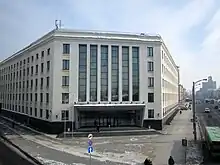

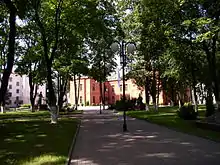
The BSU is a complex of academic, research, production, social and cultural, administrative, auxiliary and other units. There are 16 Faculties within the university structure. BSU has 4 Educational Institutes that provide training on undergraduate and post-graduate levels of education. There are a number of Institutes that conduct retraining and advanced training of both youths and adults.[32][33]
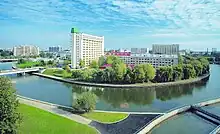
The BSU has 11 student dormitories. About 65% of housing provided by the university consists of rooms shared by 3-4 persons with a common kitchen and sanitary arrangements.
The BSU has created sports and recreation facilities for its students and staff. Training and health-improving complexes are available.
Military faculty
Military Faculty of the Belarusian State University was established on 4 November 1926, by order of the Soviet Revolutionary Military Council. In 1941, at the outset of the Second World War, military training classes were interrupted only to be resumed in 1943. In the post-war years, the military department continued to train reserve officers in accounting specialties. In 2003, the military department was reorganized into the modern military faculty of BSU.[34]
Scientific research institutes
- Research Institute of Nuclear Problems
- Research Institute of physics-chemistry problems
- Research Institute of applied physics problems
- Research Institute of applied problems of Mathematics and informatics
National research centres
- National Research Centre of Ozonosphere monitoring
- National Scientific and Educational Centre of Particles and High-Energy Physics Republican Research Centres
- Republican Centre for Human Studies
Inter-departmental centres
- Inter-departmental Centre of national parks and preserves
- Inter-departmental Centre research center «Life safety»
Centers of sharing use of unique research equipment
- Belarusian inter-university center of research facilities
- Centre of sharing use of devices and equipment of faculty of biology
- Laboratory of physical-and-chemical methods of research RI PCP
- Centre of nanotechnologies and physical electronics
BSU research centers
- Centre of Applied Problems of Mathematics and Informatics
- Education Development Centre
- Centre for youth studies
- Centre of Sociological and Political studies
- Centre for international studies
- Centre for international technologies
- Centre of informational resources and communications
- Centre of IT security
- Childhood development Centre
- Centre for Olympic training
The research activity is conducted on the basis of 25 Research Centres and 115 Scientific Laboratories. University has 4 Research Institutes:
- Research Institute of Applied Physical Problems named after A.N. Sieŭčanka
- Research Institute for Nuclear Problems of Belarusian State University
- Research Institute Of Physical And Chemical Problems
- Research Institute of Applied Mathematics and Informatics
The BSU complex also includes 12 unitary scientific-productional enterprises, among them are the following:
- Unitehprom BSU (Small-scale chemical and equipment production of various purpose);
- Unihimprom BSU (Development of the technology of diesel biofuel production from vegetable oils and other accompanying products);
- Unidragmet BSU (treatment of man-caused waste containing precious and non-ferrous metals treatment);
- Adamas BSU (Production of diamond monocrystals and instruments made of them);
- Engineering department of BSU (Production of computers, traffic controllers and systems of traffic control, software&hardware for medical experts);
- Active BSU (production of training devices for physical experiment, vacuum engineering and forage additives;
- Sand BSU (production of tests systems for drug detection).
Academic community
The core of the BSU is made of the academic community of teachers, researches, students and postgraduate students. In 2009 approximately 60% of the secondary school graduates from the country's regions were accepted for the full-time budget form of education. On the selection tours of the World Programming Championship BSU team always reaches the finals and gets into the top-20 teams of world.[35]
Programs
The BSU offers a variety of educational programs. The Higher Education Program is organised at the BSU major Faculties and Educational Institutes through 56 specialities and more than 250 specialisations. Training along the Magister's Degree Program is conducted through 48 specialities.
International cooperation
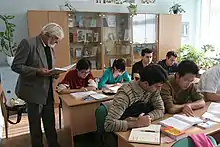

In late 1950s BSU became an international university with hundreds of international students. More than 4,000 students from over 102 countries of the world have studied at the BSU during Soviet times until the late 1990s. The Belarusian State University takes active part in international university networks and associations. It is an individual full member of the European University Association.
Library
The BSU Fundamental Library's (BSU FL) has 820 readers’ places, 140 workers, 9 home loan departments, 17 departmental and specialised reading rooms. The following digital recourses are available for students and faculty:
- The Open Public Access Catalog (OPAC) of the Belarusian State University Fundamental Library.
- Electronic Document Delivery Service - Gives opportunity to search, order and delivery of electronic copies of documents that are contained in the funds of BSU FL and its partners-libraries.
- Databases. Access to the network (local and utter by licenses) databases.
- Digitized collections. Educational and research information materials, publications and BSU conferences’ proceedings. Documents are put on the network in accordance with the copyright law acting on the territory of the Republic of Belarus.
- Virtual exhibitions.
Notable alumni
- Alena Aladava (1907-1986) - Director of the Belarusian National Arts Museum
- Lev Artsimovich (1909–1973) - physicist, academician of the Academy of Sciences of the Soviet Union, member of the Presidium of the Soviet Academy of Sciences, and Hero of Socialist Labour
- Fiodar Fiodaraŭ (1911-1994) - physicist, predicted Imbert–Fiodaraŭ effect
- Ivan Mielež (1921-1976) - writer of fiction and drama
- Aleś Adamovič (1927-1994) - writer and critic
- Efraim Sevela ("Efim Drabkin," 1928–2010) - Soviet-Israeli writer, screenwriter, director, and producer
- Anatol Hryckievič (1929-2015) - historian
- Maria Itkina (1932–2020) - runner, set multiple world records in various sprint events, competed at the 1956, 1960, and 1964 Olympics and finished four times in fourth place.
- Stanisłaŭ Šuškievič (1934–2022) - politician and scientist, the first leader and head of state of independent Belarus after the dissolution of the Soviet Union
- Ivan Chigrinov (1934-1996) - writer
- Hienadź Buraŭkin (1936-2016) - diplomat and poet
- Miečysłaŭ Hryb (born 1938) - politician, Chairman of the Supreme Soviet of Belarus
- Svetlana Alexievich (born 1948) - journalist and author, winner of Nobel Prize in Literature 2015
- Uładzimier Arłoŭ (born 1953) - historian, writer, politician, and poet
- Barys Tasman (born 1954) - journalist, sports writer
- Elena Korosteleva (born 1972) - political scientist and Director of the Institute for Global Sustainable Development at the University of Warwick
- Iryna Chalip (born 1967) - journalist
- Sunday Adelaja (born 1967) - Nigerian journalist, pastor
- Volha Čuprys (born 1969) - academic, first female vice rector of this university
- Natalla Piatkievič (born 1972) - politician and stateswoman
- Yury Ambrazevich (born 1975) - politician and diplomat
- Ilya Nemenman (born 1975) - Belarusian-American theoretical physicist at Emory University, where he is a Winship Distinguished Research Professor of Physics and Biology
- Pavał Sieviaryniec (born 1976) - politician
- Dzianis Liseichykau (born 1979) - historian and archivist
- Filip Anadyrov[36] (born 1963) - politician and notable ally of Alexander Lukashenko
Rectors
- Uładzimier Pičeta (1921–1929)
- Jazep Karanieŭski (1929–1931)
- Ivan Jermakoŭ (1931–1934)
- Anani Dziakaŭ (1934–1935)
- Alaksiej Kučynski (1936–1937)
- Ničypar Bładyka (1937)
- Uładzimier Babraŭnicki (1938)
- Parfion Savicki (1938–1944)
- Uładzimier Tamaševič (1946–1949)
- Ivan Čymburh (1949–1952)
- Kanstancin Łukašoŭ (1952–1957)
- Anton Sieŭčanka (1957–1972)
- Usievaład Sikorski (1972–1978)
- Uładzimier Bieły (1978–1983)
- Leanid Kisialeŭski (1983–1989)
- Fiodar Kapucki (1990–1995)
- Alaksandar Kazulin (1996–2003)
- Vasil Stražaŭ (2003–2008)
- Siarhiej Abłamiejka (2008-2017)
- Andrei Karol (from 2017)
References
- "БГУ". www.bsu.by.
- "БГУ. Символика БГУ". www.bsu.by.
- "QS World University Rankings-Emerging Europe & Central Asia". Retrieved 15 January 2023.
- "Belarusian State University". bsu.by. Retrieved 4 March 2014.
- "Belarusian State University". 4icu.org. Retrieved 4 March 2014.
- "Belarusian State University". export.by. Retrieved 2019-12-04.
- S.L.U, Course Guru. "All 44 Universities in Belarus | Rankings & Reviews 2022". UniversityGuru.
- "Belarusian State University : History". studyinbelarus.org. Archived from the original on 4 March 2014. Retrieved 4 March 2014.
- Reassessing Lukashenka: Belarus in Cultural and Geopolitical Context. Springer. 5 October 2014. ISBN 9781137436757.
- The Last Soviet Republic: Alexander Lukashenko's Belarus. Trafford. 2007. ISBN 9781425135270.
- "Human rights activists discuss their work, the challenges they face, and their success stories". Freedom House. Retrieved 27 October 2017.
- "Міхаіла Пашкевіча выключаюць з БДУ" (in Belarusian). Viasna Human Rights Centre. 8 April 2008. Retrieved 27 October 2017.
- Vileita, Vadzim (10 December 2009). "Expelled from university for civic activism". Human Rights House. Retrieved 27 October 2017.
- .Council Decision 2012/642/CFSP of 15 October 2012 concerning restrictive measures against Belarus, EUR-Lex, 2012
- "12 cases of politically motivated expulsions of students in Belarus from 2015-2017". Libereco – Partnership for Human Rights. 9 June 2017. Retrieved 27 October 2017.
- Charnysh, Volha (9 October 2015). "Early Voting: the Secret to a Successful Authoritarian Election?". Belarusdigest. Retrieved 27 October 2017.
- "Students of Belarusian State University are ordered to vote early". Viasna Human Rights Centre. 14 December 2010. Retrieved 27 October 2017.
- "Students are forced to vote early". Viasna Human Rights Centre. 7 October 2015. Retrieved 27 October 2017.
- "Маці адваката Бабарыкі будзе судзіцца з БДУ праз звальненне". Навіны Беларусі | euroradio.fm.
- Свабода, Радыё (5 March 2021). "З БДУ звольнілі выкладчыка ангельскай мовы. Ён толькі выйшаў пасьля 15 сутак". Радыё Свабода.
- Свабода, Радыё (14 November 2020). "З БДУ звольнілі выкладчыка клясычных моваў і антычнай літаратуры, які выкладаў па-беларуску і асуджаў гвалт". Радыё Свабода.
- "Выкладчык журфака БДУ застаўся без працы за подпіс супраць гвалту і беззаконня". Навіны Беларусі | euroradio.fm.
- Дваіх юнакоў адлічылі з ФПМІ БДУ за падтрымку студэнтаў-палітвязняў
- Студэнта-палітвязня Арцёма Баярскага адлічылі з БДУ
- "Журналістку "Народнай Волі" Глафіру Жук адлічылі з факультэта журналістыкі БДУ". baj.by.
- "Ілля Трахтэнберг - палітзняволенае студэнцтва Беларусі". zbsunion.by.
- What Happened to the Soviet University?. Oxford University Press. 23 June 2022. ISBN 978-0-19-266675-8.
- "В Беларуси фигуранты "дела студентов" получили от 2 до 2,5 лет колонии". 16 July 2021. Retrieved 30 October 2021.
- ""Дело студентов" в Минске: все 12 фигурантов приговорены к колонии — от двух до двух с половиной лет". 16 July 2021. Retrieved 30 October 2021.
- ""Дело студентов". Проректор и замдеканы БГУ изменили свои показания". 15 May 2021. Archived from the original on 30 October 2021. Retrieved 30 October 2021.
- "International Sport Arbitrator Aliaksandr Danilevich Arrested by Belarusian Police". SwimSwam. July 8, 2022.
- "Research Institute for Physical Chemical Problems of the Belarusian State University". fhp.bsu.by. Archived from the original on 17 July 2014. Retrieved 4 March 2014.
- "Belarusian State University, Minsk, Belarus". mathnet.ru. Retrieved 4 March 2014.
- "О Факультете — Военный информационный портал Министерства обороны Республики Беларусь". www.mil.by. Archived from the original on December 8, 2020. Retrieved May 22, 2020.
- "Results 2014". International Collegiate Programming Contest. Archived from the original on 2013-10-29. Retrieved 2014-09-24.
- "Biography of the President of the Republic of Belarus A.G. Lukashenko - Timeline | Official Internet Portal of the President of the Republic of Belarus". president.gov.by. Retrieved 2022-09-24.
_rv.png.webp)
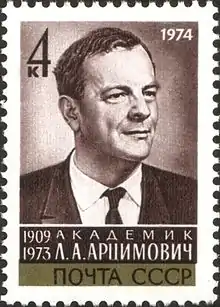
_08.JPG.webp)